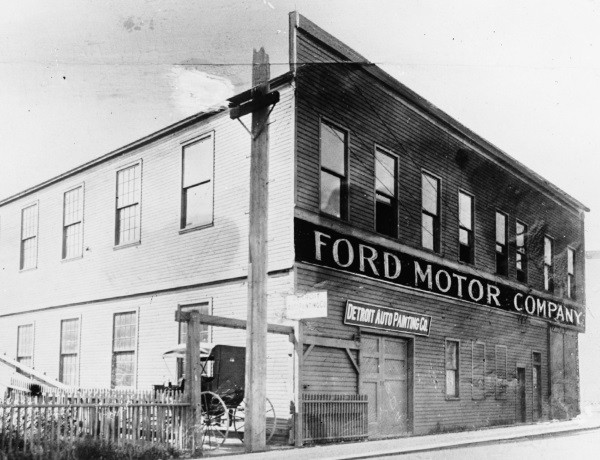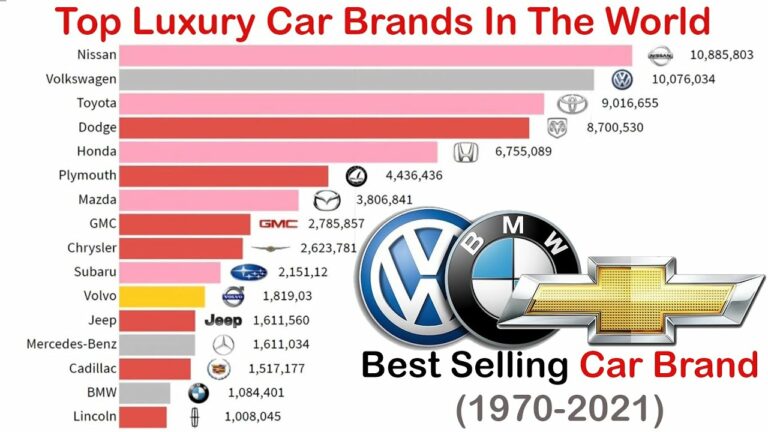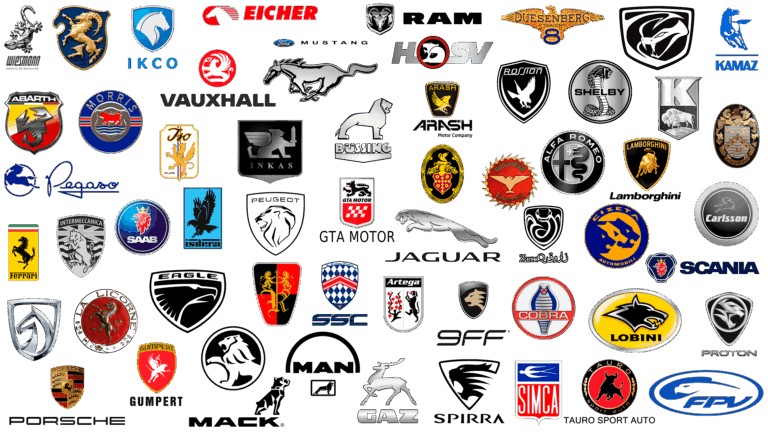Best Car Brands: A Comprehensive Guide to Automotive Excellence
Best Car Brands: A Comprehensive Guide to Automotive Excellence cars.truckstrend.com
The automotive market is a vast and dynamic landscape, teeming with innovation, engineering marvels, and diverse offerings. For consumers, navigating this complex terrain to identify the "best car brands" can be a challenging yet crucial undertaking. Defining what constitutes the "best" is inherently subjective, varying significantly based on individual priorities such as reliability, performance, luxury, value, safety, technological advancement, and environmental impact. This comprehensive guide aims to demystify the concept of best car brands, providing a detailed exploration of the criteria that define excellence, highlighting leading contenders across various categories, and offering practical advice to help you make an informed decision for your next vehicle.
Understanding the top car brands is not merely about prestige; it’s about making a significant financial and lifestyle investment that aligns with your needs and expectations for years to come. A well-chosen brand often translates to a better ownership experience, lower long-term costs, higher resale value, and greater satisfaction. By delving into the facets that make certain brands stand out, you empower yourself to select a vehicle that truly enhances your daily life.
Best Car Brands: A Comprehensive Guide to Automotive Excellence
Defining "Best": Key Criteria for Automotive Excellence
To objectively assess what makes a car brand "best," it’s essential to consider a multifaceted set of criteria that collectively contribute to a superior automotive experience. No single brand excels in every category, but the most reputable ones consistently perform well across several key areas:
- Reliability and Durability: Perhaps the most universally valued attribute, reliability refers to a vehicle’s ability to operate consistently without major mechanical issues or frequent breakdowns. Brands known for their durability often lead to lower maintenance costs and a longer lifespan for the vehicle, providing peace of mind for owners. Independent studies by organizations like J.D. Power and Consumer Reports consistently highlight top performers in this category.
- Safety: In an era of increasing road complexity, safety is paramount. Leading brands invest heavily in both passive safety features (like robust chassis design and multiple airbags) and active safety technologies (such as automatic emergency braking, lane-keeping assist, blind-spot monitoring, and adaptive cruise control). High ratings from crash-test agencies like the NHTSA (National Highway Traffic Safety Administration) and IIHS (Insurance Institute for Highway Safety) are strong indicators of a brand’s commitment to occupant protection.
- Performance and Driving Dynamics: This criterion encompasses engine power, acceleration, handling, braking, and overall responsiveness. Whether it’s the exhilarating thrust of a sports car, the smooth ride of a luxury sedan, or the robust capability of an SUV, a "best" brand delivers a driving experience that matches its segment’s expectations and often exceeds them.
- Innovation and Technology: The automotive industry is at the forefront of technological advancement. Top brands are pioneers in integrating cutting-edge infotainment systems, advanced driver-assistance systems (ADAS), seamless connectivity, and, increasingly, electric vehicle (EV) technology. Brands that consistently push boundaries in areas like battery range, charging speed, and semi-autonomous driving capabilities are often seen as forward-thinking and highly desirable.
- Luxury and Comfort: For many buyers, the interior experience is crucial. This includes the quality of materials, ergonomic design, seat comfort, noise insulation, and sophisticated climate control. Luxury brands particularly excel here, offering refined cabins, premium finishes, and a serene driving environment that elevates the ownership experience.
- Value and Resale Value: While often associated with the initial purchase price, value extends to the total cost of ownership, including fuel efficiency, insurance premiums, maintenance costs, and, critically, resale value. Brands that retain a high percentage of their original value over time provide better long-term financial sense for owners.
- Customer Satisfaction and Ownership Experience: Beyond the vehicle itself, the overall experience with a brand – from the dealership sales process to after-sales service and warranty support – plays a significant role. Brands that prioritize customer satisfaction often build strong loyalty and positive word-of-mouth.
- Environmental Responsibility: With growing global awareness, many consumers now consider a brand’s commitment to sustainability. This includes fuel-efficient gasoline engines, hybrid options, and a robust lineup of electric vehicles, alongside responsible manufacturing practices.
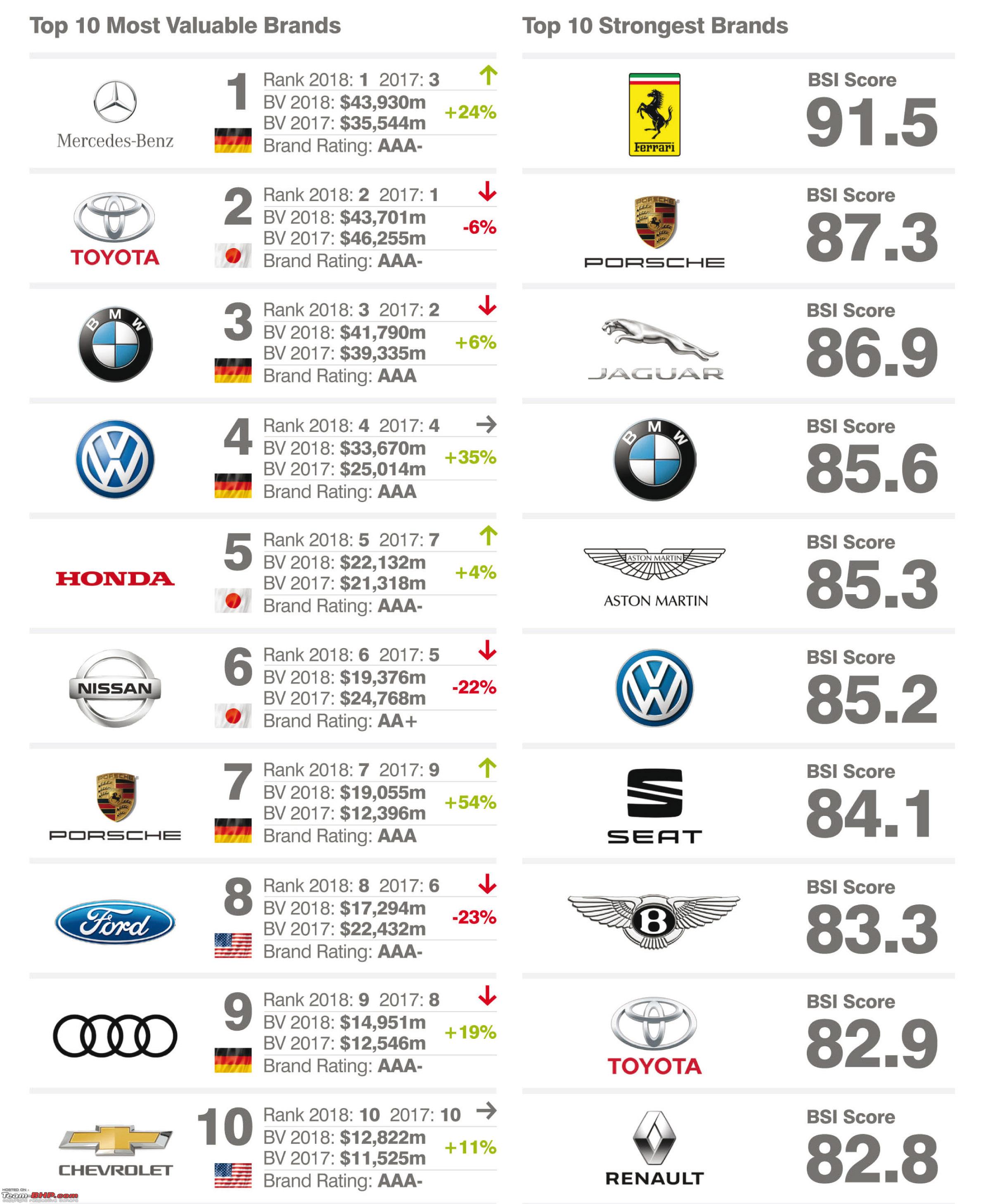
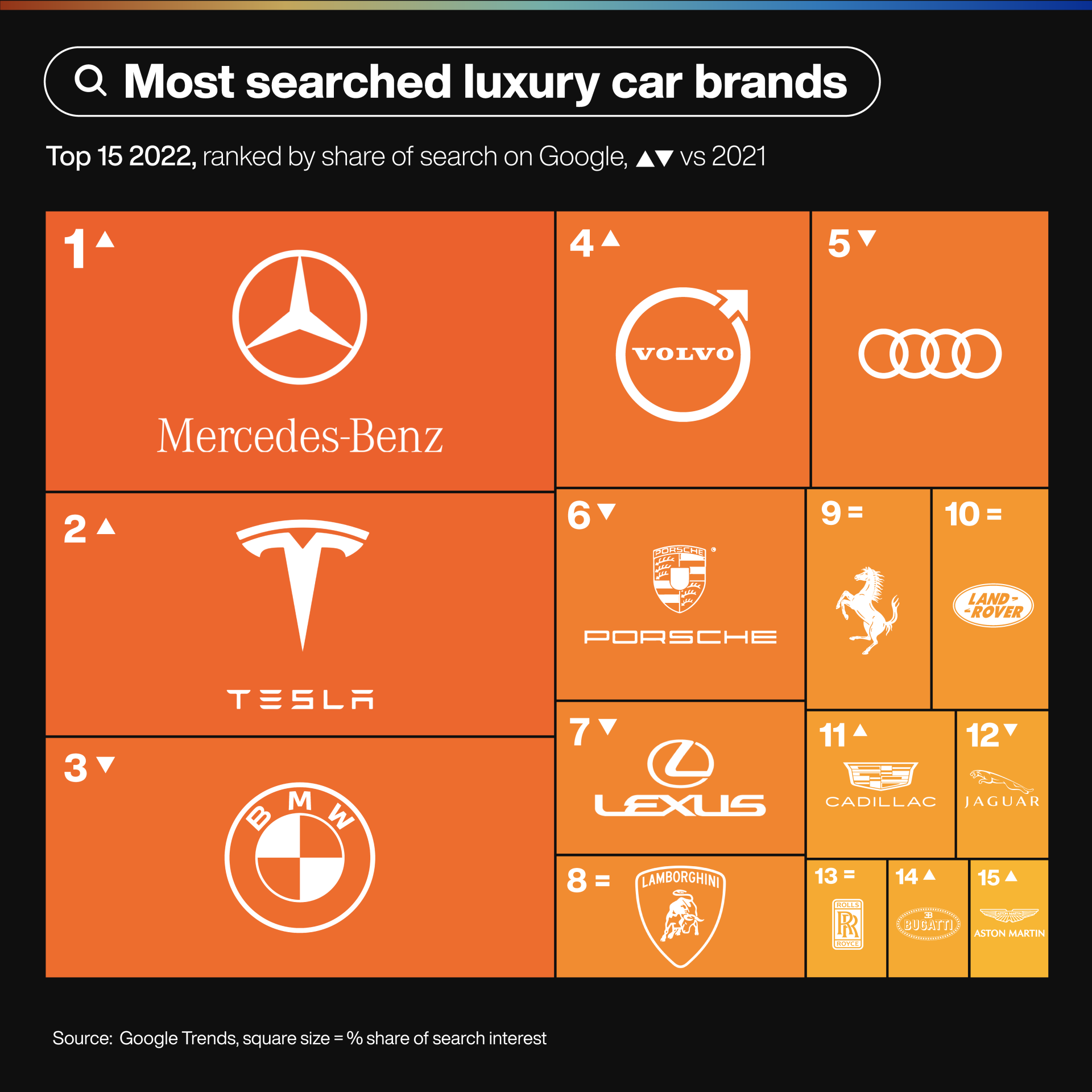
Categories of Best Car Brands: A Diverse Landscape of Excellence
The automotive market can be broadly categorized, with certain brands consistently leading within their respective niches. Understanding these categories can help narrow down your search based on your primary motivations.

Reliability & Value Champions: These brands are the bedrock of dependable transportation, offering vehicles known for their longevity, low maintenance costs, and excellent resale value.
- Toyota: Unparalleled reputation for reliability, fuel efficiency (especially with its extensive hybrid lineup), and practical, long-lasting vehicles.
- Honda: Known for its refined engines, balanced driving dynamics, strong resale value, and smart interior packaging.
- Lexus: Toyota’s luxury arm, offering exceptional reliability, plush comfort, and top-tier customer service in the premium segment.
- Subaru: Distinguished by standard Symmetrical All-Wheel Drive, strong safety ratings, and a loyal following, particularly among outdoor enthusiasts.
- Hyundai/Kia: These South Korean brands have made incredible strides, offering stylish designs, impressive features for the price, and long warranties, consistently climbing reliability rankings.
-
Luxury & Performance Icons: These brands epitomize engineering prowess, opulent interiors, and exhilarating driving experiences.
- BMW: Synonymous with "the ultimate driving machine," offering a blend of sporty handling, powerful engines, and luxurious cabins.
- Mercedes-Benz: Known for its sophisticated design, cutting-edge technology, and unparalleled comfort and prestige.
- Audi: Stands out with its elegant design, advanced technology (especially infotainment and quattro AWD), and balanced performance.
- Porsche: A legend in sports car performance, also excelling in luxury SUVs (Cayenne, Macan) and electric vehicles (Taycan), delivering an unparalleled driving thrill.
-
Innovation & Electric Vehicle Leaders: These brands are at the forefront of the automotive future, particularly in electric propulsion and autonomous driving.
- Tesla: The undisputed pioneer in electric vehicles, known for its long-range batteries, high performance, extensive Supercharger network, and advanced software features.
- Lucid & Rivian: Newer players challenging Tesla, focusing on ultra-luxury EVs (Lucid Air) and adventure-focused electric trucks/SUVs (Rivian R1T/R1S), respectively, with impressive range and performance.
- General Motors (GM) & Ford: American giants making significant investments in their EV lineups, with models like the Chevrolet Bolt EUV, Cadillac Lyriq, Ford Mustang Mach-E, and F-150 Lightning, aiming for mainstream EV adoption.
-
American Muscle & Utility Powerhouses: Brands that dominate segments like trucks, large SUVs, and performance cars, reflecting a strong sense of American identity.
- Ford: Leader in the truck market with the F-Series, also offering popular SUVs and the iconic Mustang.
- Chevrolet: A diverse lineup from powerful trucks (Silverado) and SUVs (Tahoe, Suburban) to the legendary Corvette.
- Ram: Specializes in rugged, capable, and increasingly luxurious pickup trucks.
- Jeep: The quintessential off-road brand, offering unmatched capability and a strong brand heritage.
How to Choose the Best Car Brand for You: A Practical Guide
Selecting the "best" car brand isn’t about picking the one at the top of a generic list; it’s about finding the brand that best aligns with your specific needs, budget, and lifestyle. Follow these steps for an informed decision:
-
Assess Your Needs and Priorities:
- Budget: Determine your total budget, including purchase price, insurance, fuel, maintenance, and potential depreciation.
- Lifestyle: Are you a single commuter, a growing family, an outdoor adventurer, or a luxury seeker? This dictates vehicle type (sedan, SUV, truck, EV).
- Daily Usage: How far do you drive? Is it mostly city, highway, or off-road? Do you need cargo space, towing capacity, or fuel efficiency?
- Feature Preferences: Prioritize features like advanced safety, infotainment, performance, or interior comfort.
-
Research and Compare:
- Consult Reputable Sources: Read reviews from independent automotive journalists (e.g., Edmunds, Car and Driver), consumer advocacy groups (e.g., Consumer Reports, J.D. Power for reliability and satisfaction studies), and safety organizations (NHTSA, IIHS).
- Compare Models Across Brands: Once you have a vehicle type in mind, compare specific models from different "best" brands. Look at specifications, standard features, optional packages, and safety ratings.
- Watch Video Reviews: Get a visual and auditory sense of the car and its features.
-
Test Drive Extensively:
- Drive Multiple Brands/Models: Don’t limit yourself to one brand. Test drive vehicles from at least 2-3 different brands that meet your criteria.
- Replicate Your Driving Conditions: Drive on highways, city streets, and parking lots. Test acceleration, braking, handling, and maneuverability.
- Assess Comfort and Ergonomics: Pay attention to seat comfort, visibility, ease of controls, and overall cabin feel.
- Check Cargo Space: If applicable, verify that the trunk or cargo area meets your needs.
-
Consider Total Cost of Ownership:
- Insurance Costs: Get quotes for specific models, as premiums can vary significantly by brand and model.
- Maintenance and Repairs: Research typical maintenance schedules and average repair costs for the brands you’re considering.
- Fuel Efficiency/Charging Costs: Compare MPG for gasoline cars or charging costs/range for EVs.
- Depreciation and Resale Value: Look up estimated depreciation rates and average resale values for the models. Brands with strong reliability often have better resale value.
-
Evaluate Dealership Experience and Service Network:
- Proximity: Is there a dealership conveniently located near you for service and support?
- Reputation: Check online reviews for the local dealership’s sales and service departments. A good relationship with your dealer can greatly enhance the ownership experience.
Challenges and Solutions in Choosing a Car Brand
The journey to finding the best car brand can present several hurdles. Being aware of these challenges and their solutions can streamline your decision-making process.
- Overwhelming Choices: The sheer number of brands, models, and trims can be daunting.
- Solution: Start by narrowing down your needs and budget. Use online tools to filter cars by type, price range, and essential features. Focus on 2-3 brands that consistently rank high in your priority areas (e.g., reliability, luxury, performance).
- Budget Constraints: Desire for premium features often clashes with financial realities.
- Solution: Be realistic about your budget. Consider well-equipped models from value-oriented brands that offer many features found in higher-end vehicles. Explore certified pre-owned (CPO) options from luxury brands, which often come with extended warranties and rigorous inspections, providing a near-new experience at a lower cost.
- Conflicting Information: Different reviews and rankings can sometimes present contradictory views.
- Solution: Rely on a diverse set of reputable sources. Look for patterns and consensus across multiple expert reviews and consumer surveys. Pay attention to the specific criteria each review emphasizes.
- Rapid Technological Change (Especially EVs): The rapid evolution of electric vehicles and autonomous driving tech can create "fear of missing out" or concern about obsolescence.
- Solution: Assess your current needs. If an EV fits your daily driving habits and charging infrastructure, consider a current model with good range. If you’re hesitant, a hybrid or a fuel-efficient gasoline car might be a safer bet for now. Leasing can also be a good option for new technologies, allowing you to upgrade more frequently.
- Brand Loyalty vs. Objectivity: Previous positive experiences with a brand can make it hard to consider alternatives, even if other brands might offer a better fit now.
- Solution: Be open-minded. While loyalty is understandable, the automotive landscape changes rapidly. Research new entrants or brands that have significantly improved their offerings. A test drive of a competitor’s model can often reveal unexpected benefits.
Tips for a Smart Car Purchase
Beyond choosing the right brand, the purchase process itself requires savvy navigation.
- Set a Realistic Budget (and Stick to It): Include not just the purchase price but also estimated running costs, insurance, and taxes.
- Don’t Rush the Decision: Take your time researching, test driving, and negotiating. Hasty decisions often lead to buyer’s remorse.
- Negotiate Effectively: Research the average transaction price for the model you want. Be prepared to walk away if the deal isn’t right.
- Understand Financing and Leasing Options: Compare interest rates, loan terms, and lease conditions carefully. Calculate the total cost over the loan/lease period.
- Get a Pre-Purchase Inspection (for Used Cars): Even if buying from a reputable dealership, an independent mechanic’s inspection can uncover hidden issues.
- Read the Fine Print: Understand warranty details, service plans, and any extended coverage before signing.
Best Car Brands: Representative Price Ranges & Strengths
This table provides a general overview of popular models’ typical price ranges for some of the consistently high-ranking car brands, along with their primary strengths and target audience. Prices are approximate and can vary significantly based on model, trim level, options, and market conditions.
| Car Brand | Typical Price Range (Popular Models) | Key Strengths | Target Audience/Niche |
|---|---|---|---|
| Toyota | $20,000 – $60,000+ | Unmatched reliability, high resale value, fuel efficiency, extensive hybrid lineup | Value-conscious, long-term owners, families, practical buyers |
| Honda | $20,000 – $50,000+ | Reliability, engaging driving dynamics, practical design, strong safety ratings | Practical buyers, commuters, small families, urban dwellers |
| BMW | $40,000 – $150,000+ | Dynamic performance, precise handling, luxurious interiors, advanced technology | Driving enthusiasts, luxury seekers, performance-oriented buyers |
| Mercedes-Benz | $45,000 – $200,000+ | Pinnacle of luxury, sophisticated design, cutting-edge technology, comfort | Luxury buyers, status-conscious, comfort-focused individuals |
| Audi | $35,000 – $120,000+ | Elegant design, advanced infotainment, standard Quattro AWD, balanced performance | Design-focused, tech-savvy, luxury-minded, all-weather drivers |
| Lexus | $40,000 – $90,000+ | Peerless reliability in luxury, whisper-quiet cabins, smooth ride, exceptional customer service | Luxury buyers valuing dependability, comfort, and service |
| Tesla | $40,000 – $130,000+ | EV innovation leader, rapid acceleration, extensive Supercharger network, minimalist tech | Tech-forward, environmentally conscious, early adopters, performance EV fans |
| Hyundai/Kia | $20,000 – $60,000+ | Excellent value, stylish design, long warranties, improving quality, growing EV options | Budget-conscious, warranty-seeking, design-aware, practical buyers |
| Ford | $25,000 – $80,000+ | Dominance in trucks (F-Series), popular SUVs, iconic performance cars (Mustang), evolving EV lineup | Truck buyers, SUV families, American brand loyalists, performance car fans |
| Subaru | $25,000 – $45,000+ | Standard Symmetrical AWD, strong safety ratings, rugged reliability, outdoor lifestyle appeal | Adventure seekers, safety-conscious, families, cold-weather drivers |
Note: The "Typical Price Range" represents the general spectrum for popular new models (sedans, SUVs, trucks) within each brand’s lineup and can vary greatly by specific model, trim, and optional features.
Frequently Asked Questions (FAQ) about Best Car Brands
Q1: What is the most reliable car brand?
A1: While reliability rankings can fluctuate slightly year to year based on new models, Toyota and its luxury division Lexus consistently rank at the very top for long-term reliability and low incidence of problems. Honda and Mazda also frequently score very highly.
Q2: Which car brands offer the best value for money?
A2: For excellent value that balances affordability with features, quality, and good warranties, Hyundai and Kia are strong contenders. Toyota and Honda also offer great value due to their long-term reliability, low running costs, and strong resale values.
Q3: Are luxury cars worth the extra cost?
A3: This is subjective. Luxury cars like BMW, Mercedes-Benz, and Audi offer superior performance, advanced technology, premium materials, and enhanced comfort and prestige. For those who prioritize these attributes and can afford the higher purchase price, insurance, and maintenance costs, they are often "worth it." For others, a well-equipped mainstream vehicle provides sufficient comfort and features at a lower total cost of ownership.
Q4: Should I buy an electric vehicle (EV) now or wait?
A4: The decision to buy an EV depends on your specific needs. If you have access to charging, a predictable commute, and prioritize environmental impact and lower fuel costs, current EVs from brands like Tesla, Hyundai, Kia, and Ford offer compelling options. If you have range anxiety, limited charging access, or a tight budget, waiting for more infrastructure development and potentially lower prices might be advisable.
Q5: How important is resale value when choosing a car brand?
A5: Resale value is very important for the total cost of ownership. A car that retains its value well will cost you less in depreciation over the years you own it. Brands like Toyota, Honda, Subaru, and Lexus are renowned for their strong resale values, making them financially smart choices in the long run.
Q6: What are the safest car brands?
A6: Many brands prioritize safety, but Volvo has a long-standing reputation for pioneering safety innovations. Brands like Subaru, Mazda, and luxury brands like Mercedes-Benz and BMW also consistently achieve top safety ratings from organizations like the IIHS and NHTSA across their model lineups, thanks to robust construction and advanced driver-assistance systems.
Conclusion: Driving Your Informed Choice
Identifying the "best car brands" is less about finding a single, universally superior manufacturer and more about understanding the diverse strengths that different brands bring to the table. From the unwavering reliability of Toyota and Honda to the exhilarating performance of BMW and Porsche, the opulent comfort of Mercedes-Benz, and the innovative spirit of Tesla, each leading brand offers a unique proposition.
The journey to your ideal vehicle is a personal one, driven by your specific needs, financial considerations, and lifestyle preferences. By using the criteria outlined in this guide, diligently researching, and taking the time to experience various models through test drives, you empower yourself to make an informed decision. Ultimately, the best car brand for you will be the one that delivers consistent satisfaction, meets your expectations for quality and performance, and provides peace of mind throughout your ownership journey. Happy driving!

